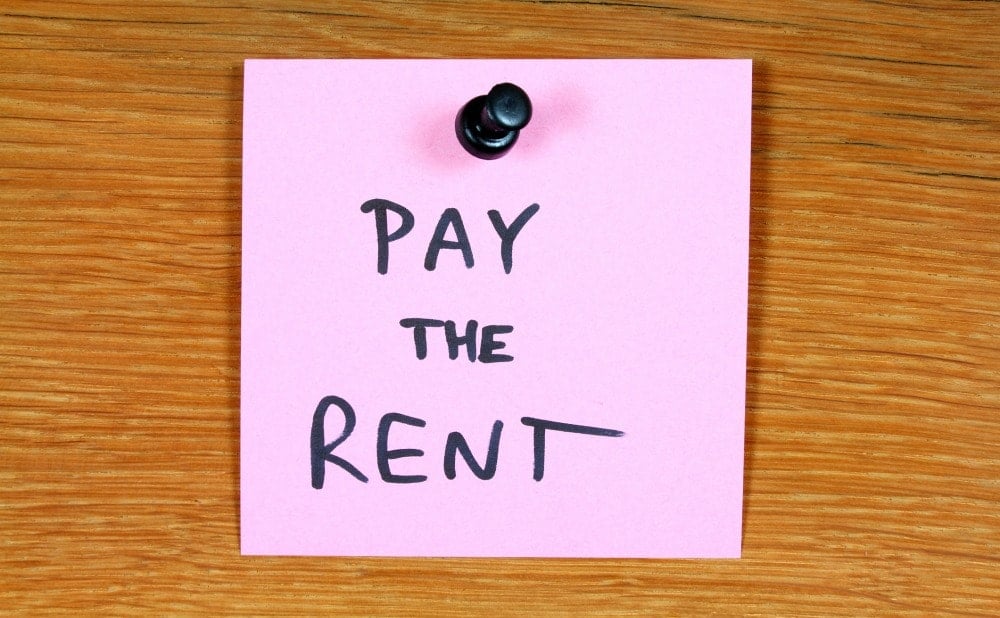
One of the biggest challenges property owners in Prince George’s County face is collecting rent from tenants.
Though ideally every tenant will pay rent in full and on time every month, all property owners know that this is not always realistic. There will be a late paying tenant at one point or another; it just comes with being in the rental property business.
So, how do you deal with late paying tenants?
To learn how to handle non-paying tenants before it becomes an issue for you, keep reading.
We are going to reveal some of the most effective ways to handle tenants that do not pay their rent on time, because the truth is, this is very much a part of being a property owner. Equipping yourself with ways to take care of late rent payments will ultimately lead to the best outcome for both you and your tenants.
Top 5 Ways to Handle Late Paying Prince George’s County Tenants
Late rent payments come with the territory of being a property owner. And, while some property owners and their property management companies can be quite forgiving when it comes to late paying tenants, you do not want this to become a recurring issue.
Here are some of the best ways to handle late paying tenants, along with a few important considerations, when you are faced with the fact that your rent payment will not be deposited into your bank account on time.
1. Set Clear Expectations from the Start

Before diving into how to handle a late paying tenant, it is important to understand the proactive approach to preventing late payments in the first place. Although not foolproof, setting clear expectations at the time of move-in is going to be one of the best ways to get your tenants to pay on time every month.
- Set a clear payment date. In the signed lease agreement, you should have a designated rent payment due date clearly outlined for your tenant to see. This often fits best in the same section that details how much the monthly rent rate is and what the acceptable forms of payment are. If your tenant knows very clearly beforehand when rent is due, they may be less likely to miss the payment.
- Dictate a “late payment” date. If you or your Prince George’s County property management company want to allow a grace period for “late” rent payments, include that in the signed lease agreement as well. This way, your tenants know exactly how many days past the rent due date they have to pay without penalty. It is also important to designate on what date a rent payment will be considered “missed.”
- Set a “missed” payment penalty. Clearly define in the lease agreement what the penalty is for paying the rent after the due date and grace period.
- Consider sending out reminder notices. Sometimes, life gets in the way and tenants forget to pay their rent; it can happen even to the best of them. Consider sending out email, text, or phone call reminders to tenants when their rent due date is nearing so that it is on their mind.
- Implement an online rent collection process. Collecting rent online, especially when automated, helps high quality tenants that are not trying to miss payments stay on track. It also gives tenants a more convenient way to pay.
By outlining in the lease agreement all details regarding rent collection, you establish with your tenant what you expect from them each month, and when. That means your tenant should have no excuses for late payments.
Additionally, by taking that extra step, as well as reminding your tenants that their rent is due and offering convenient online payment options, you take the “I forgot” excuse out of their list of reasons why they didn’t pay on time.
2. Act Quickly
If by chance, after all of the above-mentioned prevention strategies do not work, and a tenant pays their rent late (that is, past the grace period), act immediately.
You or your property manager should issue a notice of non-payment right away. This notice will outline for the tenant how many days (generally three) the tenant has to pay the rent in full before you start the eviction process. It can also include any applicable late charges for paying the rent so far past the due date.
Every state has its own rules and regulations regarding notices of non-payment, so make sure you and your property management company understand the law in your area. And, don’t forget to document in the tenant’s file that you reached out to them and informed them of their late payment.
3. Start the Eviction Process

Though this seems harsh, the only way to protect you, your investment property, and your rental property business is to stick to your guns when it comes to rent that is so late it surpasses the grace period and extension-with-penalty period.
This means starting the eviction process right away.
In Maryland, there is no law requiring a notice of non-payment be given to a tenant that has missed a rent payment. This means that as soon as the payment is considered “missed,” you can file a lawsuit right away to start the eviction process. That said, your tenant can still stop the eviction process if they pay the rent in full, along with any late penalties and court fees, up until the day of the trial or hearing for their eviction lawsuit.
4. Stay Consistent
Staying consistent with all of your Prince George’s County tenants when it comes to late rent payments does a few things:
- Establishes you as a firm, but fair property owner
- Avoids the possibility of favoritism or discrimination accusations
- Streamlines the rent collection process at all points
- Enables you to strongly defend your actions in court, should you go to trial or face a judge
Consistency is key to maintaining a successful rental property business. After all, your bottom line depends on rent collection. If you don’t get your money, you are hurting yourself.
5. Considerations to Think About

Some property management companies have a zero tolerance policy for late payments, no matter the excuse. And, while this may be the most effective way to handle the issue of late paying tenants, it is important to remember that each situation is different.
If you are a property owner who believes in assessing a scenario before immediately acting, consider the following when it comes to late paying tenants:
- Is the tenant new or a long-term, good-standing tenant? If a new tenant is already making late rent payments, you might want to consider acting immediately, as suggested above. After all, you have no way of knowing whether this is a one-time occurrence or a budding new reality. However, if you are dealing with a tenant that has been leasing from you for some time, and this tenant has always paid on time, you may want to consider at least giving them a notice of non-payment.
- What is the financial reasoning behind the late payment? In hearing your tenant’s excuse for a late rent payment, consider the financial reason for it prior to acting. For example, a surprise car problem is not likely to affect later rent payments, whereas a lost job is.
- What is the communication like with the tenant? If you are dealing with a tenant that is avoiding you and not paying their rent on time, it is time for you to act on this to prevent further issues. This may include an aggressive reminder, a notice of non-payment, or even the filing of an eviction lawsuit. However, if your tenant is openly communicating with you, is willing to work something out, and understands the severity of late rent payments, you may want to back off starting the eviction process right away.
Collecting rent from your tenants can be a difficult thing. Not every tenant will pay in full and on time, which makes your job as a property owner that much tougher.
If you want to forgo the process of rent collection and the stresses that come with late paying tenants, contact Bay Management Group today.
We have streamlined the rent collection processes so that you get your money on time, every time. And, when a rent payment comes late, Bay Management Group follows the lease agreement and penalizes accordingly, even if that means evicting a current tenant right away.
So contact us today and see how Bay Management Group can not only help you with the entire rent collection process, but everything else property related as well.
